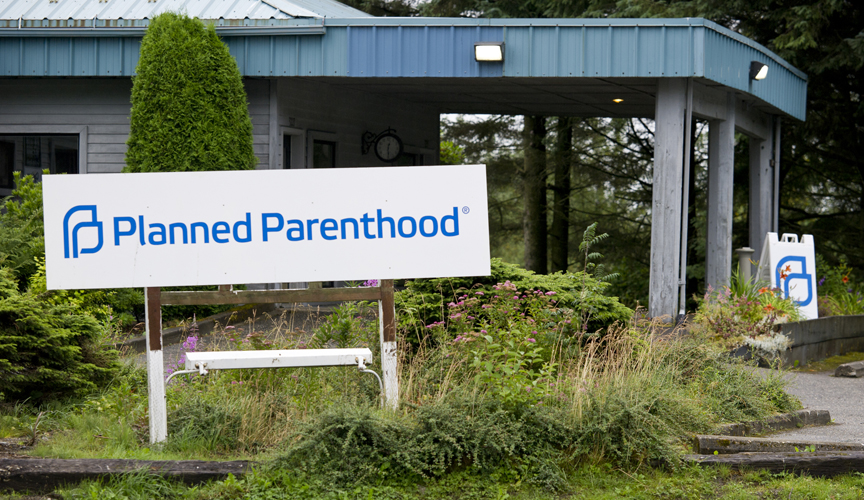JUNEAU — The Alaska Supreme Court on Friday struck down a state law requiring parental notification for girls under age 18 seeking abortions, agreeing with pro-abortion rights advocates that the mandate approved by voters in 2010 was unconstitutional.
Justice Daniel Winfree, writing for the majority, said the court was not deciding whether abortions should be available to minors without restrictions but that the abortion notification law violated Alaska’s constitutional equal protection provisions giving the same rights to all Alaskans.
In a concurring opinion, Justice Dana Fabe disagreed that the law violated the girls’ equal protection rights but said she believes it violated their right to privacy.
“I believe that the Alaska Constitution permits a parental notification law, but not one that contains provisions that are among the most restrictive of any state’s notification laws,” she wrote.
The decision was praised by pro-abortion rights advocates, including the American Civil Liberties Union of Alaska and Planned Parenthood of the Great Northwest and the Hawaiian Islands, which challenged the law.
“A young woman seeking an abortion doesn’t need additional hurdles. She needs a doctor,” said Joshua Decker, executive director of Alaska’s ACLU, in a statement.
[Read the court’s decision here]
Supporters of the law criticized the ruling, noting that it won majority support among voters. The voter-led initiative was supported by 56 percent of voters.
The court’s decision “elevated the demands of abortionists over the rights of parents,” said Steven H. Aden, a lawyer for the Alliance Defending Freedom anti-abortion group that argued for maintaining the law.
Justice Craig Stowers cast the only vote against striking down the law, writing that it provided parents an opportunity to discuss with daughters the impact of abortions and alternatives to ending pregnancies.
“The Alaska Court today trivializes and makes this right of no effect,” he wrote.
Under the law, doctors who performed abortions for those under age 18 in violation of the notification requirements could be sued later by the girl or her parents for damages.
A lower court had already struck down that provision but state attorneys defending the law sought to have it reinstated, Fabe wrote.
She described that element of the law as “more punitive and chilling” than penalties for doctors in other U.S. states where parental abortion notification is required.
Alaska’s notification law did not apply to girls ages 16 or 17 who were married, supported themselves independently or had court orders specifying they had been emancipated from parents or guardians. Girls who did not want to notify parents about an abortion had the option of getting permission from judges.
Girls who said they were abused by one or both parents could bypass the notification process by providing a notarized statement signed by the victim and another person who knew about the alleged abuse. The law included an exception for medical emergencies.
Alaska’s law was more restrictive than the parental notification laws in 11 other U.S. states because of the rigorous notification documentation required, said Laura Einstein, chief legal counsel for Planned Parenthood of the Great Northwest and the Hawaiian Islands. There also were stiff judicial standards for allowing girls to get abortions without parental notification, she said.
Republican state Sen. Mia Costello, one of the initiative’s original sponsors, expressed disappointment with the decision, saying the court was “making judgments that are denigrating of families and parents.”
“It’s the wrong direction that our country is going in, really, where families are being kept in the dark about things,” she said.
Costello said it is premature to say whether state legislators will propose a new parental notification law and that she thinks lawmakers must focus on addressing a multibillion-dollar state deficit brought on largely by low oil prices.
Cori Mills, a spokeswoman for the state’s Department of Law, said the 90-page court decision was being reviewed by state attorneys but that the notification requirement is no longer enforceable because of the ruling.
—
Related stories:
Alaska budget director: More state job losses to come
Zika patient treated at Sitka hospital
‘Rolling wake’: Southeast woman kept husband’s body in truck and drove it around ‘for a couple days’

